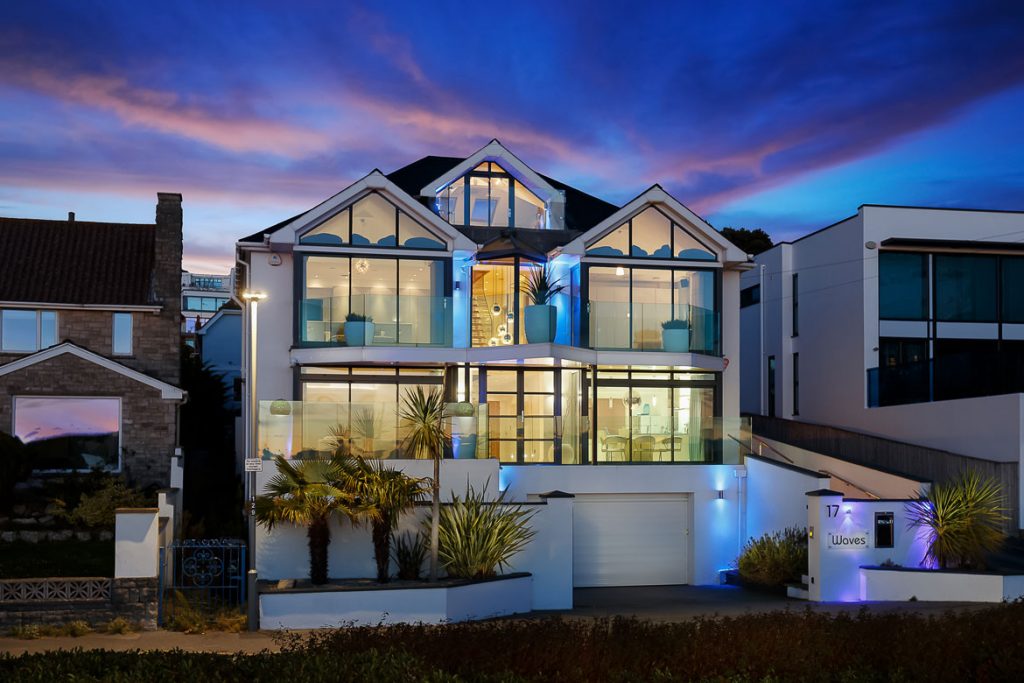I think all of us responsible for any sort of management are feeling a great empathy for Eddie Howe at Bournemouth, it’s not going as well as hoped and I’m sure the relegation battle is keeping him up at night. Some things are beyond your control but if you do nothing you can’t be surprised if you get the same results. Something has to change but what?
An owner recently said to me ‘You don’t really do anything nowadays – people just choose their holidays online and you collect the money’. Nothing could be further from the truth, selling on the web is a hugely complex exercise which requires constant attention and action based on analysis.
It’s easy to bask in the glory when a property is doing well which is generally a combination of luck and judgement but it’s when bookings are not coming in that we need to prove our worth. Although I’m going to talk about the holiday letting business, the principles apply to marketing almost anything online, whether it be selling houses, long term rentals or washing machines.
Gut feel does have its place in all marketing and some things like wording of descriptions are subjective but what we are going to concentrate on are measurable data points and appropriate action.
Establish what to measure and produce a data set for comparison
Before you can consider anything you have to have something to compare it with so at regular intervals I run data across all our properties so I know where each property stands. An owner may ring to say they are concerned with the number of August bookings, if they have 30% more bookings for the year than average across the portfolio then there’s no need for any action other than patience. It’s sometimes difficult to get across that roughly 50% of our properties will have below average results across all datasets so we also consider historical data – are we up on last year and how did that finish?
Number of bookings
This is the statistic anchoring all the analysis – expectations will vary according to property type and strategy – we may go for fewer bookings at a higher rate in some cases but across the board this is the key performance indicator and the one we use to determine which properties are under-performing and need action.
Unique page views
In our business a guest will view a property multiple times before booking so we use unique page views which is the number of different people that have viewed a property in a given period. It’s not an exact representation as views from a work computer, phone and ipad at home will count as three unique visits but that’s fine as long as you are using a consistent measure. If uniques are low then that’s actually good news – there’s no point in changing anything as if people aren’t looking they won’t be booking. Action is easy, you need more traffic so we can promote the property on the front page, feature in an email newsletter and highlight on landing pages for appropriate paid search adverts.
Booking Rate
Assuming that the page is receiving average or better unique page views then the booking rate gives us a measure of the problem. This is simply the number of bookings divided by the number of page views producing a percentage of people who went on to book, typically 1-3%. Now we can see how much of a problem we have – if it’s a little below average then a few tweaks and a bit of promotion will be enough to steer things in the right direction, if it’s very low then we need to move on to further analysis and more radical action.
Page dwell time
This is a measure of how long people stay looking at a page and gives us an insight into whether they like what they see. A lower than average dwell time indicates that something is putting people off so we need to look at the description but most of all the photos – are they a bit dull or out of date? We may do a re-shoot perhaps with some new soft furnishings or on a perfect sunny day, however sometimes just changing the lead photo can make a difference.
If the dwell time is higher than average then it’s likely that we have a price issue – potential guests like what they see and are looking at things in detail but eventually not booking so it’s time to consider a price reduction.
Managing price changes
Lowering price overall is different from putting up a special offer. If you are going to do a discount then there needs to be a reason – last minute, new property promotion, early booking special. If you just put an offer across the calendar without a reason it feels a bit like the permanent sale at a kitchen company. If you promote a discount then the data will be skewed and you won’t know how effective the reduction would be in the long term. The right thing to do is simply lower the price without fanfare then compare the data after a statistically significant period of time – typically a month or so. I prefer to make a fairly substantial change to prove the point, perhaps 10-20%, the worst that can happen is you get lots of bookings which is definitely a first world problem.
If all else fails
- Sometimes bookings can remain stubbornly low despite all of our efforts and we need to look at doing something significant, especially if the place is a little bit away from the beach so not an obvious first choice for guests. Apart from a refurb or big update of contents there are a few things to try that can make a real difference.
- Accept dogs – costs nothing and can make a really big difference, especially if you have a nice enclosed garden.
- Consider getting a hot tub if you have a suitable place to put it. Does require a bit of investment and they do need a lot of maintenance but definitely bring more revenue than they cost.
For larger properties gear up for big family weekends. Normally we don’t like to pack in guests as we just end up getting the same money for more wear and tear but if you have a 4 or 5 bed house with a bit of space, adding some extra bunks or singles to stretch the capacity can get you access to a different market. You will need to get in a big enough table for everyone to eat together.
The key message here is that it’s no good doing nothing and hoping it gets better, blaming the weather, the economy or anything else – the dog ate my homework! It’s really important to keep a track of performance and take action, otherwise you can’t be surprised if there’s no change in the outcome.
EVERYTHING FOR THE HOLIDAY HOME OWNER IN SANDBANKS & SURROUNDING AREAS
Tel 01202 707357



Leave a Reply